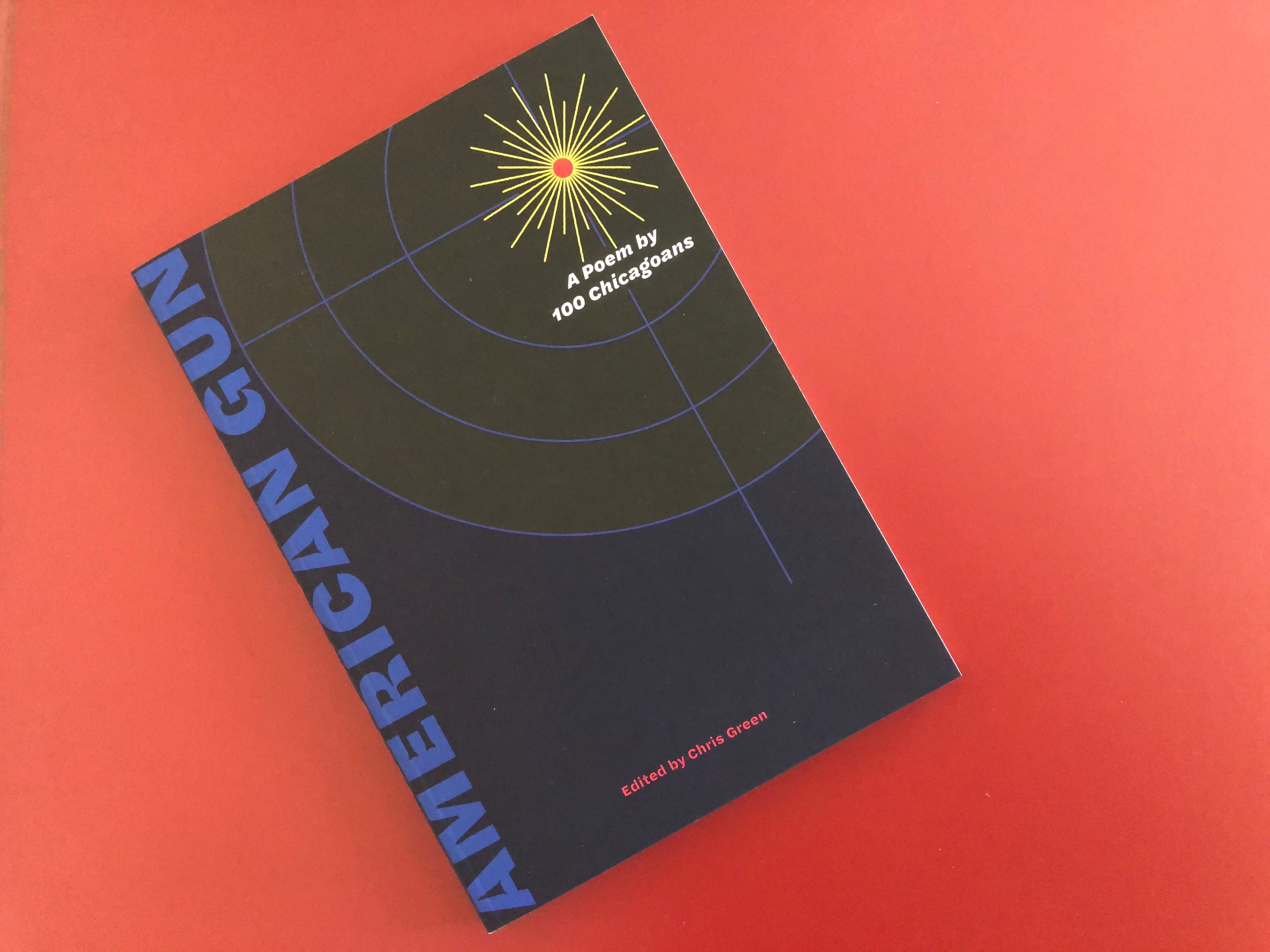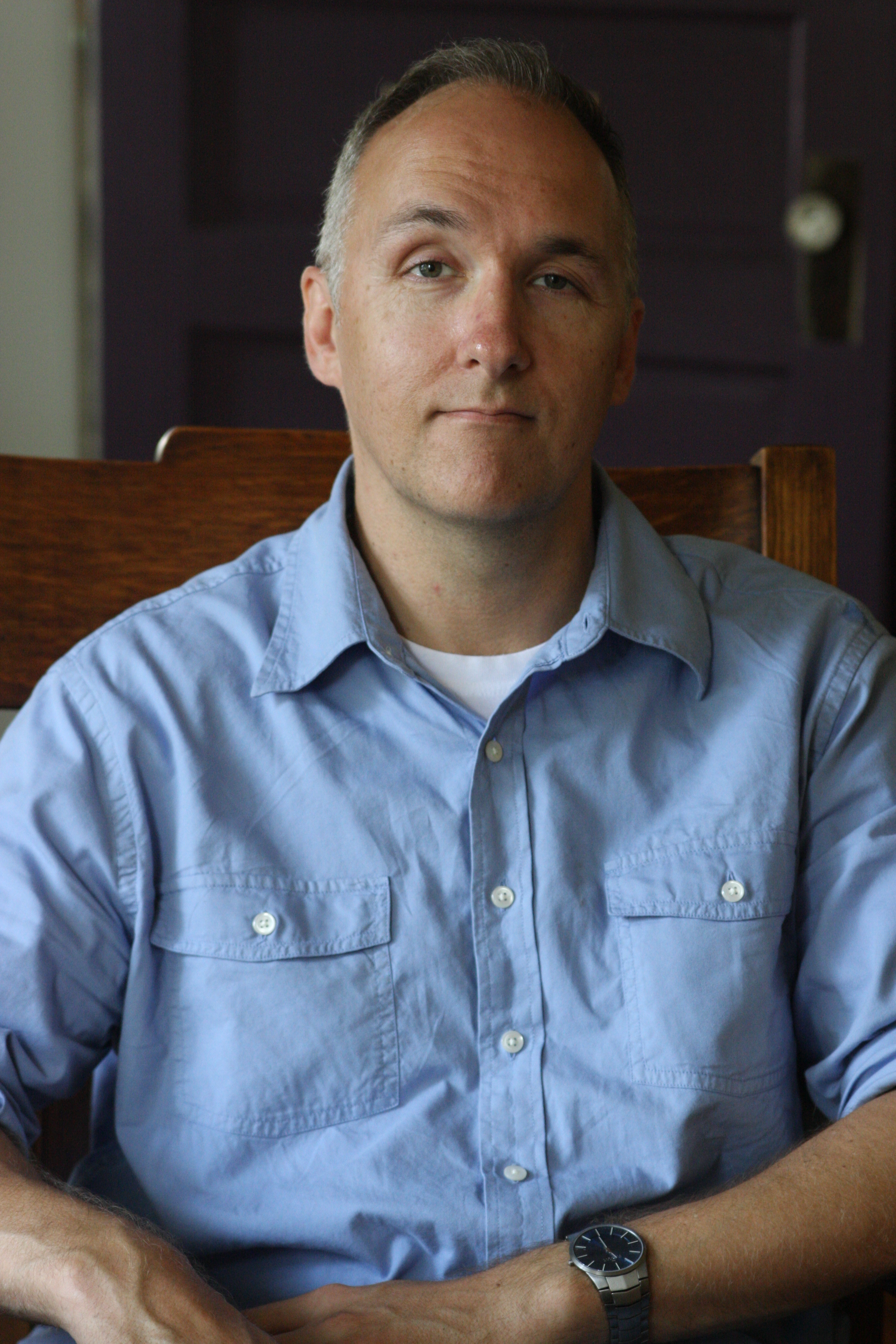 "American Gun: A Poem by 100 Chicagoans," was edited by Chris Green, a senior professional lecturer of English, and published by Big Shoulders Books. (Natalie Bontumasi)
"American Gun: A Poem by 100 Chicagoans," was edited by Chris Green, a senior professional lecturer of English, and published by Big Shoulders Books. (Natalie Bontumasi)One of poetry’s most important powers is its ability to personalize the impersonal, according to Chris Green, a senior professional lecturer of English. He hoped to give a human voice to the statistics of gun violence in Chicago and reached out to a diverse group of writers, from famous poets to aspiring ones, to the teens directly impacted by the city’s gun violence, with the goal of collectively writing a single poem.
Their collaborative effort, titled “American Gun: A Poem by 100 Chicagoans” and published by Big Shoulders Books is now available as a
free e-book. Big Shoulders Books is a unique press in DePaul’s English Department, with a mission to give voice to issues and communities in Chicago that might not normally have a voice. The books are then given away for free. Big Shoulders Books is supported by the generosity of Bill and Irene Beck, the latter a former adjunct faculty member in DePaul’s Women and Gender Studies Department.
Chris Watkins, a second-year graduate student at DePaul studying English, contributed to the project because he sensed its importance. “Writing is mostly a solitary habit, but the act of 100 poets coming together and agreeing to say something cohesive about the problem of guns in our city — that’s powerful and important,” he says. “It felt like a whole city of poets coming together.”
Poetry style highlights repetitive nature of gun violence
Poetry, according to Green, is a powerful medium to use to respond to social issues. He founded the poetry collective, the Poetic Justice League, to respond to different social issues through poetry. While working with groups of four poets around the country who were writing pantoums about gun violence in general, he realized it would be an apt project for Chicago in particular.
“The pantoum form, even though it’s not meant for a group, allows for a kind of chorus to sing together,” he says. In a pantoum, the second and fourth lines from each four-line stanza are repeated as the first and third lines in the next stanza, so when written by a group, each poet adds two original lines to each stanza. Below are two sequential stanzas that model the form:
10. To be separate from the list, living
means we must keep them alive by revisiting
their names, places, dates, ages
like tombstones filed into a field of memory.
— Written by John McCarthy, author of “Scared Violent Like Horses,” which won the Jake Adam York Prize.
11. We must keep them alive by revisiting
the moments before they expired.
Tombstones filed into a field of memory,
the rising and falling.
— Written by Madelyn Funk, associate editor of Poetry East and a DePaul graduate student pursuing a master’s degree in English.
 Chris Green is a senior professional lecturer of English in the College of Liberal Arts and Social Sciences and the editor of the new book "American Gun: A Poem by 100 Chicagoans." (Laura Friedlander)
Chris Green is a senior professional lecturer of English in the College of Liberal Arts and Social Sciences and the editor of the new book "American Gun: A Poem by 100 Chicagoans." (Laura Friedlander) “Every line in a pantoum repeating twice mirrors the repetitive violence in the city, and gives the poem a feeling similar to the idea of semiautomatic gun fire,” says Green, the editor of the book.
In addition to McCarthy and Funk, other contributors include writers Haki R. Madhubuti, author of the poetry collection, “Don’t Cry, Scream”; Ed Roberson, author of the poetry collection “To See the Earth Before the End of the World”; and Ed Hirsh, author of the book of poems “The Living Fire: New and Selected Poems.”
Young poets provide necessary perspectives
Green planned the poem so young poets from the city’s South and West Sides would write the last quarter of the poem to give them the final word. He also wanted to represent in particular, some students from Chicago’s alternative high schools, who experience the most gun violence in the city. The last eight stanzas are written by these students.
Watkins was particularly moved by the stanzas written by the student poets. “No other poets in the poem come close to the level of poignancy and beauty of language in the face of gun violence,” he says.
For Green, the final product is evidence of the role poetry can have in conversations around important societal issues. “I hope that readers can see that it takes a community to care about issues like gun violence, and care enough to make a mountain of a poem. I hope they see that there is still a place for poetry and art to address important issues,” he says.
A print edition of “American Gun: A Poem by 100 Chicagoans” will be available later this summer. To pre-order a free copy, visit the
Big Shoulders website.